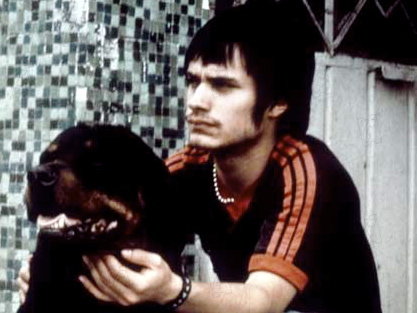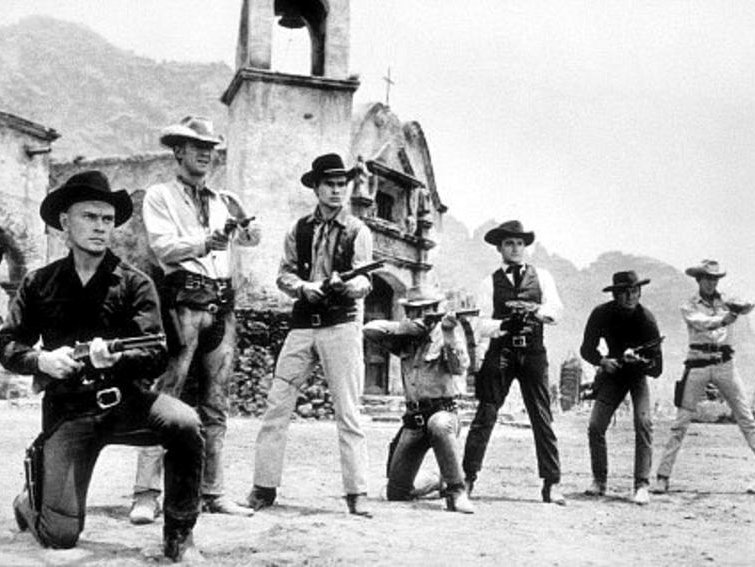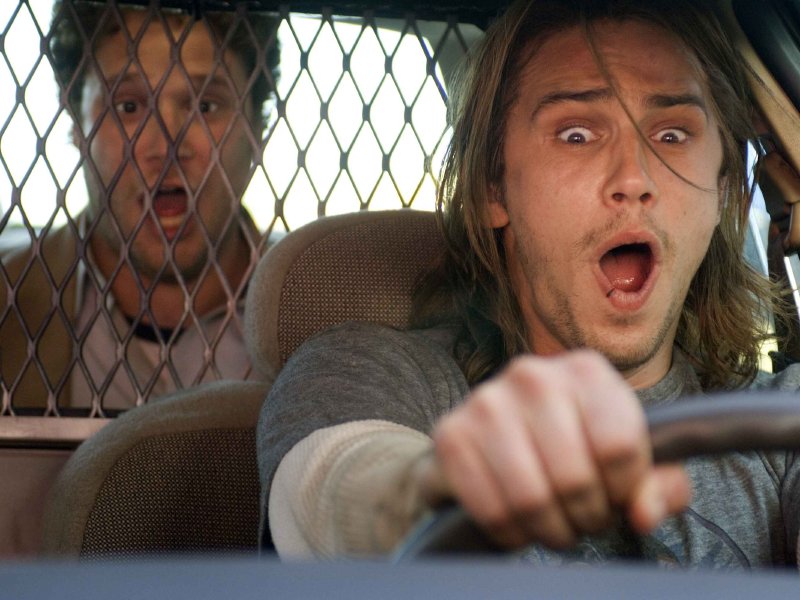Bayside resident Mark Metcalf is an actor who has worked in movies, TV and on the stage. He is best known for his work in "Animal House," "Buffy the Vampire Slayer" and "Seinfeld."
In addition to his work on screen, Metcalf is involved with the Milwaukee International Film Festival, First Stage Children's Theater and a number of other projects.
He also finds time to write about movies for OnMilwaukee.com. This week, Metcalf weighs in on "Z."
Z (1969)
I first saw "Z" when it came out in 1969. It was a time of revolution. Change was more than a word thrown out in a political campaign, and bell-bottom pants and long hair were only window dressing for what a lot of people had in their hearts and minds.
We saw economic injustice. We saw a war that served no just purpose; a war that only killed a lot of strangers and some of our friends in a country far away and messed up the minds of those it didn't kill.
We saw overt racism in the South and subtle, equally debilitating racism in the North. We saw white men of money and influence flexing their muscles over people of color throughout the world. We saw a social system focused on greed and the toys of progress rather than the joy of the children and the health of the aged. We saw a world of business that functioned in opposition to nature, which treated the rock we live on as if it was a commodity, one that could be easily replaced when we had used this one up. We saw willful, arrogant ignorance of humanity.
Even as we saw these things, we still loved rock & roll, loved to laugh with our friends and dance in the streets. We believed celebration would keep us free. And we believed the world could change.
So we were naïve. And here we are, 40 years later, in almost exactly the same place. There is a lot more apathy and a serious degree of complacency. Today, no one is standing in the street with candles to mourn the dead and ask for it all to stop.
"Z" is a fiction film that feels like a documentary the way "Battle of Algiers" feels like a documentary. When I first saw it I was convinced it was a true story. A man, labeled a leftist, a good man, a doctor, an athlete, and a Senator, in a country not unlike Greece, is running for higher office representing the people's needs against a militant repressive government.
He gives a speech after a good deal of difficulty, and he has his skull crushed by a man with a club as he walks back to his hotel with his comrades. A government judge takes up the investigation and discovers that the police and the military conspired to have the man assassinated and to cover up the brutal murder. He continues his investigation, in spite of threats by the military, and the truth is revealed, though nothing is done about it.
I thought it was real because no one is brought to justice in the film and, by 1969, it seemed as though there would be no justice in America. I thought it was real because at the end of the film there is a long list of the artists, writers, and musicians who were banned when the military junta took over the government because of protests over the man's murder. It was a list of all the good things: The Rolling Stones, the Beatles, Ezra Pound, T.S. Eliot, even Peanuts and Charles Schultz. In 1969, because of people like George Wallace, Richard Nixon and Spiro Agnew, I felt that could happen here.
So, I was a little paranoid as well as naïve.
Some public officials still try to get books banned. Apparently the vice presidential candidate for one of the political parties tried to fire a librarian who would not ban a certain book. But that kind of repression is not widespread. Neither is the kind of corruption that is represented in "Z." Politicians lie but only in the interest of getting elected and that is just part of the game. Everyone does it. So what?
"Z" isn't real, but it certainly feels real. The editing won an Academy Award in 1970. Costa Gavras, the director, was nominated as Best Director, as was the picture itself. Because the focus of the film is on the story, on what is happening, none of the acting calls attention to itself. The film is filled with wonderful performances that don't seem acted; they seem lived. It is great filmmaking of that type that holds the mirror up to nature when the mirror is clear and clean with no distortions.
It felt like it was happening right outside the doors of the theatre in 1969. And even today, watching it at home in the suburbs of a growing American city, safe and comfortable, it feels like it could be happening somewhere right now, in a small country where the press is controlled by corporations and military contractors have a lot to gain by perpetuating a useless war. And a small cabal of men in suits, a tiny portion of the population, controls the economy while the middle class disappears and the underclass grows in size and desperation. Where the intelligent, educated people, Spiro Agnew's "effete snobs," Sarah Palin's "East Coast elite" are considered the enemy of the state because they think too much and ask too many questions. But there I go, getting paranoid again. It's just a movie. But, a really good one.







